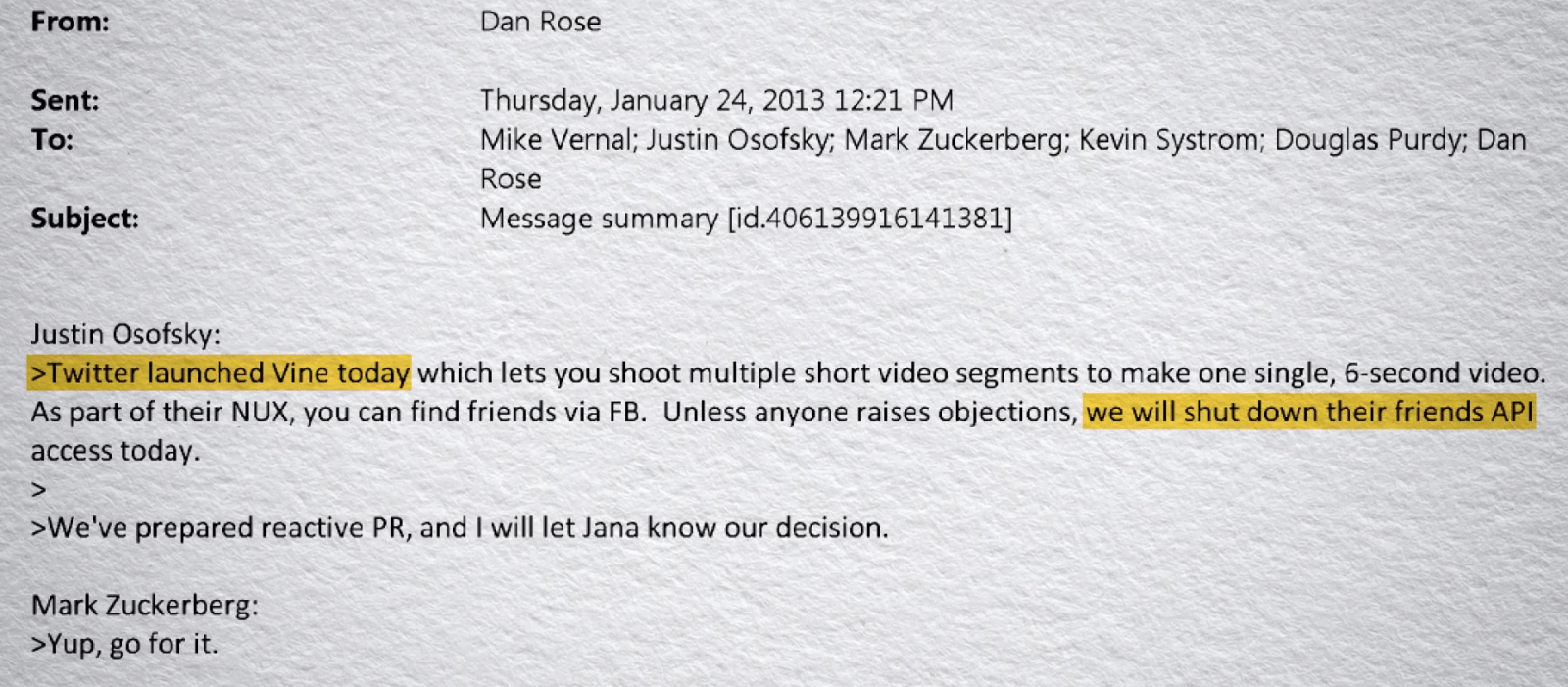The British Parliament has published internal confidential correspondence between Facebook’s Chief Executive Mark Zuckerberg and the social network’s other employees. 250 pages of corporate e-mails provide for...
The British Parliament has published internal confidential correspondence between Facebook’s Chief Executive Mark Zuckerberg and the social network’s other employees.
250 pages of corporate e-mails provide for better understanding of the company’s tacit user privacy policies and its fight against competition. However, the exact meaning of some communications is not entirely clear because of the context.
It follows from the correspondence that Facebook provides enhanced access to user data to some developers. The companies that have enjoyed such expanded privileges include Netflix, Airbnb and Lyft.
The company also discussed monetizing an enormous amount of user data. For example, in an e-mail dated October 2012, Zuckerberg suggested that Facebook could provide some of its services to developers free of charge, but they would have to pay 10 cents to access each user’s data. As a result of the discussion, the company’s Chief Executive decided that access to data will remain free, and third-party developers will have to request permission to use information directly from users.
A few months ago, Zuckerberg appeared before the U.S. Senate and apologized for the massive user data leak scandal. At that point, he flatly rejected the possibility of selling users’ personal information.
Another approach typical of Zuckerberg’s is his aggressive policy towards competitors. For example, when Twitter launched Vine, its six-second looping video application, the developers disabled the API, which allowed users to add friends from Facebook. According to the correspondence, Zuckerberg has the last say in such decisions.
There was a phrase used by Zuckerberg in the correspondence published that was most widely circulated by mass media. Discussing content sharing in third-party apps, he declared that «it may be good for the world but it’s not good for us, because it does not increase the value of our network.» Many see in this phrase exactly how the company’s management treats the users and competitors. The main principle is the growth of Facebook, no matter what.
The year of 2018 has brought major reputational and financial losses to Facebook and Zuckerberg personally due to data leak scandals, security issues and the lack of transparency in the company’s policies.
The greatest negative effect is caused by the gap between the principles publicly declared by the company and its practices: the development of Facebook depends on Zuckerberg’s selective decisions with respect to competitors or friendly companies.
Share this with your friends!







Be the first to comment
Please log in to comment